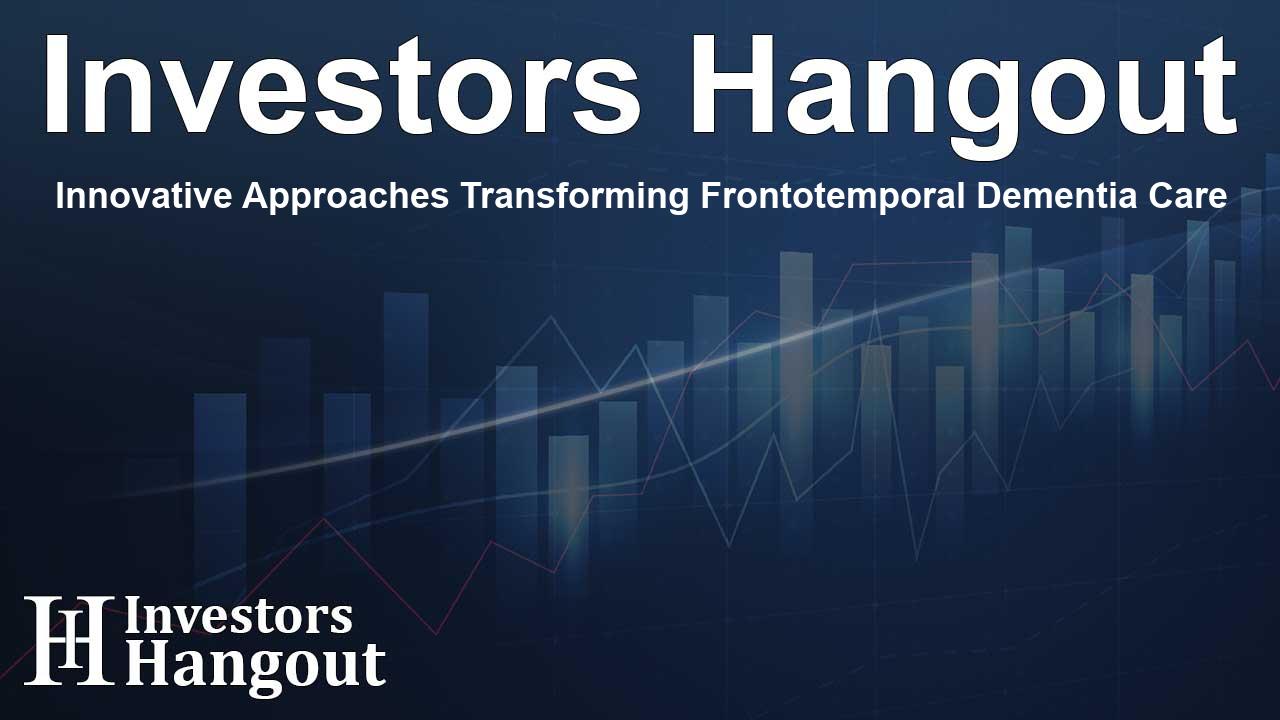Innovative Approaches Transforming Frontotemporal Dementia Care

Innovations in the Frontotemporal Dementia Market
The frontotemporal dementia (FTD) market is on the verge of a transformative evolution. With new therapies, heightened awareness, and extensive research initiatives, there is a growing optimism about the future of treatment options for this complex neurodegenerative condition. From 2025 to 2034, the introduction of innovative drugs such as Latozinemab, PBFT02, and TAK-594/DNL593 is expected to significantly enhance the treatment landscape.
Current Market Landscape and Emerging Therapies
Latest reports indicate that the size of the frontotemporal dementia market was approximately USD 60 million in 2024. This figure stems from estimates showing around 130,000 diagnosed cases across major markets. Emerging therapies are anticipated to address both the clinical challenges faced by healthcare providers and the urgent needs of patients. Companies such as Alector, Passage Bio, and Denali Therapeutics are leading the charge in developing innovative solutions that might redefine care standards.
Key Players and Therapies
Among the notable products in development, Latozinemab stands out as the frontrunner for FTD-GRN, achieving federal designations that highlight its potential impact. Other promising treatments are being developed by institutions committed to tackling frontotemporal dementia's complex nature. Research indicates that these therapies may help address the psychological and motor symptoms experienced by patients.
Challenges in the Treatment of Frontotemporal Dementia
Despite the optimism surrounding new therapies, challenges persist in the frontotemporal dementia landscape. One significant hurdle is the complex pathology of the disorder, which often leads to misdiagnoses and delayed treatment. Moreover, the financial burden on patients and healthcare systems adds to the difficulty of managing this disease effectively.
The Role of Comprehensive Care
Comprehensive management of FTD involves a range of therapeutic strategies, including medications for psychiatric symptoms and supportive therapies. While traditional treatments may offer some benefits, emerging drugs are expected to provide more effective solutions for the underlying causes of the disease.
Looking Ahead: Future Prospects for the FTD Market
The horizon for frontotemporal dementia treatments appears bright as research communities push forward with their work on gene therapies and innovative drug designs. As awareness of FTD continues to expand, it is likely that both identification and management of the disease will improve significantly. The anticipation surrounding clinical trials and drug approvals fosters hope for patients and their families.
Clinical Trials and Breakthrough Research
Current research initiatives, including trials for innovative therapies, promise to lead the way toward new standards of care, reflecting the growing commitment to advancing FTD treatment. Progress in the field confirms that effective solutions are on the way, and the emerging pipeline of drug therapies holds immense potential for reshaping patient outcomes.
Frequently Asked Questions
What is frontotemporal dementia?
Frontotemporal dementia is a type of neurodegeneration that primarily affects the frontal and temporal lobes of the brain, leading to changes in personality, behavior, and language capabilities.
What recent advancements have been made in FTD treatments?
Recent advancements include the development of gene therapies and monoclonal antibodies designed to address underlying biological mechanisms contributing to FTD, such as Latozinemab.
How does the market for FTD therapies look in the coming years?
The market for FTD therapies is expected to grow significantly as research progresses, and new therapies gain regulatory approval, potentially reshaping treatment protocols.
What role does diagnosis play in managing FTD?
Accurate diagnosis is crucial due to the overlapping symptoms with other neurological disorders, which can complicate treatment efforts and delay intervention.
Who are the major players in the FTD treatment landscape?
Leading companies in the FTD treatment landscape include Alector, Passage Bio, and Denali Therapeutics, which are all working on innovative therapies under development.
About The Author
Contact Evelyn Baker privately here. Or send an email with ATTN: Evelyn Baker as the subject to contact@investorshangout.com.
About Investors Hangout
Investors Hangout is a leading online stock forum for financial discussion and learning, offering a wide range of free tools and resources. It draws in traders of all levels, who exchange market knowledge, investigate trading tactics, and keep an eye on industry developments in real time. Featuring financial articles, stock message boards, quotes, charts, company profiles, and live news updates. Through cooperative learning and a wealth of informational resources, it helps users from novices creating their first portfolios to experts honing their techniques. Join Investors Hangout today: https://investorshangout.com/
The content of this article is based on factual, publicly available information and does not represent legal, financial, or investment advice. Investors Hangout does not offer financial advice, and the author is not a licensed financial advisor. Consult a qualified advisor before making any financial or investment decisions based on this article. This article should not be considered advice to purchase, sell, or hold any securities or other investments. If any of the material provided here is inaccurate, please contact us for corrections.
